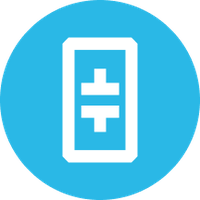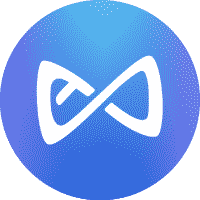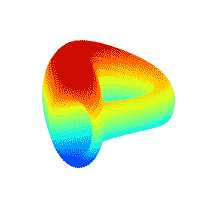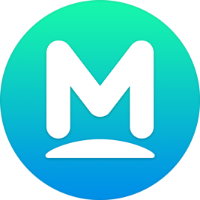


Prezzo di DAO MakerDAO
Convertitore da DAO a EUR
Come ti senti oggi in merito a DAO Maker?
A proposito di DAO Maker (DAO)
Cos'è DAO Maker?
DAO Maker è una piattaforma decentralizzata nel settore delle criptovalute e della blockchain, che funge da incubatore e fornisce strumenti e servizi alle startup crypto nelle prime fasi di sviluppo. È famoso per il suo DAO Launchpad, il prodotto principale che permette agli holder di token DAO di investire in progetti futuri, facendo da collegamento tra progetti innovativi e potenziali investitori. La piattaforma è stata determinante per il lancio di progetti importanti come My Neighbor Alice, Orion Protocol, Seascape Network e Infinity Pad. DAO Maker non si concentra solo sui progetti che incuba, ma anche su quelli che hanno superato le sue meticolose verifiche, assicurando agli investitori l'accesso a progetti crypto affidabili e di alta qualità.
Fondato da Christoph Zaknun e Giorgio Marciano, con Zaknun come CEO e Marciano come CTO, DAO Maker mira a democratizzare l'accesso al capitale di rischio, estendendolo agli investitori retail globali, la maggior parte dei quali normalmente dispone di risorse limitate. Permettendo alle persone comuni di costruire in modo sicuro il proprio capitale, DAO Maker sta migliorando il tenore di vita di milioni di persone e sta generando una nuova fonte di finanziamento per l'innovazione globale. La piattaforma è sviluppata con un'attenzione particolare al coinvolgimento e alla crescita della community, ritenendo che il successo dei progetti blockchain dipenda da community forti e vivaci che partecipano attivamente allo sviluppo e alla crescita del progetto.
Risorse utili
Sito web ufficiale: https://daomaker.com/
Come funziona DAO Maker?
DAO Maker funziona consentendo agli utenti di sfruttare i loro diritti di proprietà attraverso varie offerte come le Strong Holder Offerings (SHO), le vendite SEED e le Dynamic Coin Offerings (DYCO). Gli utenti partecipano alle vendite, alle quali destinano il loro DAO Power, aumentando così le possibilità di essere ricompensati con un'allocazione. DAO Maker suddivide gli utenti in diverse categorie in base alla quantità di DAO spesi, e ogni categoria offre maggiori possibilità di vincita. Il prodotto di punta della piattaforma, il DAO Launchpad, prevede offerte di token attraverso SHO e DYCO private e pubbliche, richiedendo agli utenti di mettere in stake DAO nei caveau della piattaforma per partecipare a tali offerte.
DAO Maker introduce anche prodotti innovativi come i Venture Bonds, ampliando il mondo della partecipazione retail nelle startup crypto. Questo prodotto offre obbligazioni di startup crypto e distribuisce i fondi di DAO Maker ai mercati dei prestiti iper-collateralizzati per ottenere un rendimento, che viene poi convertito in capitale e distribuito alle startup per facilitarne la crescita e lo sviluppo. I rigorosi criteri di selezione della piattaforma assicurano che solo i progetti blockchain di più alta qualità siano selezionati per essere lanciati sul DAO Pad, fornendo allocazioni relativamente alte ai partecipanti vincenti nelle IDO e offrendo ai progetti ospitati una vasta scelta di servizi oltre al lancio dei token per aumentare le possibilità di successo.
Cos'è il token DAO?
Il token DAO è l'utility token nativo di DAO Maker. Funge da strumento principale per le transazioni e da incentivo per gli utenti partecipanti. DAO viene distribuito tra gli utenti come ricompensa per la partecipazione ad attività quali lo staking, la fornitura di liquidità, la partecipazione alla governance e il lancio di progetti. Il token DAO funge anche da token di governance della piattaforma, consentendo agli utenti che lo holdano di votare per le modifiche all'ecosistema DAO Maker e garantendo agli utenti l'accesso a funzionalità esclusive della piattaforma, tra cui sconti e premi. Con un'offerta totale limitata a 312 milioni, non è inflazionistico e le ricompense fornite da ciascun "yield vault" (caveau di rendimento) sono fornite dai partner dell'ecosistema DAO Maker.
L’influenza di DAO Maker sulla finanza
DAO Maker sta rimodellando il panorama finanziario fornendo un approccio decentralizzato e guidato dalla community alla raccolta di fondi e allo sviluppo di progetti in ambito blockchain. Sta democratizzando l'accesso al capitale di rischio, consentendo agli investitori retail (individuali) di tutto il mondo di investire in progetti crypto di alta qualità in modo sicuro. Concentrandosi sullo sviluppo di community e offrendo una serie di strumenti di gestione della community come il social mining, i programmi di fidelizzazione e la gamification, DAO Maker assicura la crescita e il successo delle startup nascenti del settore crypto. Il focus della piattaforma sulla decentralizzazione e sulla responsabilizzazione degli utenti è in linea con le premesse del movimento DeFi, eliminando la centralizzazione delle operazioni di crypto e dando agli utenti più potere sulle scelte finanziarie.
Cosa determina il Prezzo di DAO Maker?
Il prezzo di DAO Maker, come quello di altre criptovalute, è influenzato da una miriade di fattori, che rendono complessa una previsione precisa del prezzo. Le tendenze del mercato delle criptovalute, le notizie e le analisi giocano un ruolo fondamentale nel determinare il prezzo di DAO Maker. Le notizie sulle criptovalute contengono spesso annunci, sviluppi normativi e altri eventi che possono avere un impatto significativo sul mercato delle criptovalute e sui prezzi dei vari token. Ad esempio, le notizie positive sui progressi o sulle partnership di DAO Maker possono portare a un aumento della domanda, facendo salire il prezzo, mentre le notizie sfavorevoli o la regolamentazione delle criptovalute possono avere l'effetto opposto.
Gli appassionati e gli esperti di criptovalute si rivolgono spesso alle analisi e ai grafici delle criptovalute per valutare il potenziale movimento del prezzo di DAO Maker. I grafici e le analisi del mercato delle criptovalute forniscono approfondimenti sulle tendenze del mercato, consentendo sia ai principianti che agli esperti di prendere decisioni informate su dove acquistare criptovalute e ottimizzare la gestione del proprio portafoglio di criptovalute. Il prezzo di DAO Maker è soggetto anche alla volatilità del mercato delle criptovalute, che può essere influenzato da movimenti del mercato più ampio, da evoluzioni nell'adozione delle criptovalute e da cambiamenti nelle tendenze crypto. I potenziali investitori che desiderano acquistare DAO Maker possono farlo sui principali exchange come Bitget, dove possono analizzare le strategie di trading delle criptovalute e valutare se DAO Maker è il miglior investimento in crypto per il 2023 e oltre.
Rapporto di analisi IA su DAO Maker
Prezzo live di DAO Maker in EUR di oggi
Storico prezzi di DAO Maker (EUR)
 Prezzo più basso
Prezzo più basso Prezzo più alto
Prezzo più alto 
Qual è il prezzo più alto di DAO Maker?
Qual è il prezzo più basso di DAO Maker?
Previsione del prezzo di DAO Maker
Quale sarà il prezzo di DAO nel 2026?
Quale sarà il prezzo di DAO nel 2031?
FAQ
Qual è il prezzo attuale di DAO Maker?
Qual è il volume di trading di 24 ore di DAO Maker?
Qual è il massimo storico di DAO Maker?
Posso acquistare DAO Maker su Bitget?
Posso ottenere un guadagno costante investendo in DAO Maker?
Dove posso acquistare DAO Maker con la commissione più bassa?
Notizie su DAO Maker
Aggiornamenti su DAO Maker
Mercato di DAO Maker
Saldi di DAO Maker
Matrice di distribuzione dei saldi di DAO Maker
Saldo di DAO Maker per concentrazione
Indirizzi DAO Maker per durata dell'holding

Prezzi di DAO Maker mondiali
- 1
- 2
- 3
- 4
- 5
Come acquistare DAO Maker(DAO)

Crea il Tuo Conto Bitget Gratuito

Verifica il Tuo Conto

Converti DAO Maker in DAO
Partecipa al copy trading di DAO seguendo i trader d’élite.
Nuovi listing su Bitget
Acquista di più
Dove posso acquistare DAO Maker (DAO)?
Sezione video: verifica rapida e accesso rapido al trading

Convertitore da DAO a EUR
Valutazioni di DAO Maker
Bitget Insights



Asset correlati
Informazioni aggiuntive su DAO Maker
Panoramica della moneta
In relazione alle monete
In relazione al trading
Aggiornamenti delle monete
Trading
Earn
DAO/USDT
Spot


























.png)






Dati social di DAO Maker
Nelle ultime 24 ore, il punteggio riguardo l’opinione generale sui social media per DAO Maker è stato 3.3, e l’opinione generale sui social media verso l'andamento dei prezzi di DAO Maker è stato Rialzista. Il punteggio complessivo di DAO Maker sui social media è stato di 576, collocandosi al 191° posto tra tutte le criptovalute.
Secondo LunarCrush, nelle ultime 24 ore le criptovalute sono state menzionate sui social media per un totale di 1,058,120 volte, con DAO Maker che è stato menzionato con un rapporto di frequenza pari al 0.01%, posizionandosi al 312° posto tra tutte le criptovalute.
Nelle ultime 24 ore, ci sono stati in totale 287 utenti unici che hanno discusso di DAO Maker, con un totale di 58 menzioni riguardo DAO Maker. Tuttavia, rispetto alle 24 ore precedenti, il numero di utenti unici ha avuto un/una diminuzione del 9%, inoltre il numero totale di menzioni ha avuto un/una diminuzione del 25%.
Su X, c'è stato un totale di 4 tweet che hanno menzionato DAO Maker nelle ultime 24 ore. Tra questi, il 50% è rialzista su DAO Maker, il 25% è ribassista su DAO Maker ed il 25% è neutrale su DAO Maker.
Su Reddit, ci sono stati 2 post che hanno menzionato DAO Maker nelle ultime 24 ore. Rispetto al precedente periodo di 24 ore, il numero di menzioni ha avuto un/una diminuzione del 60%.
Panoramica su tutti i social
3.3